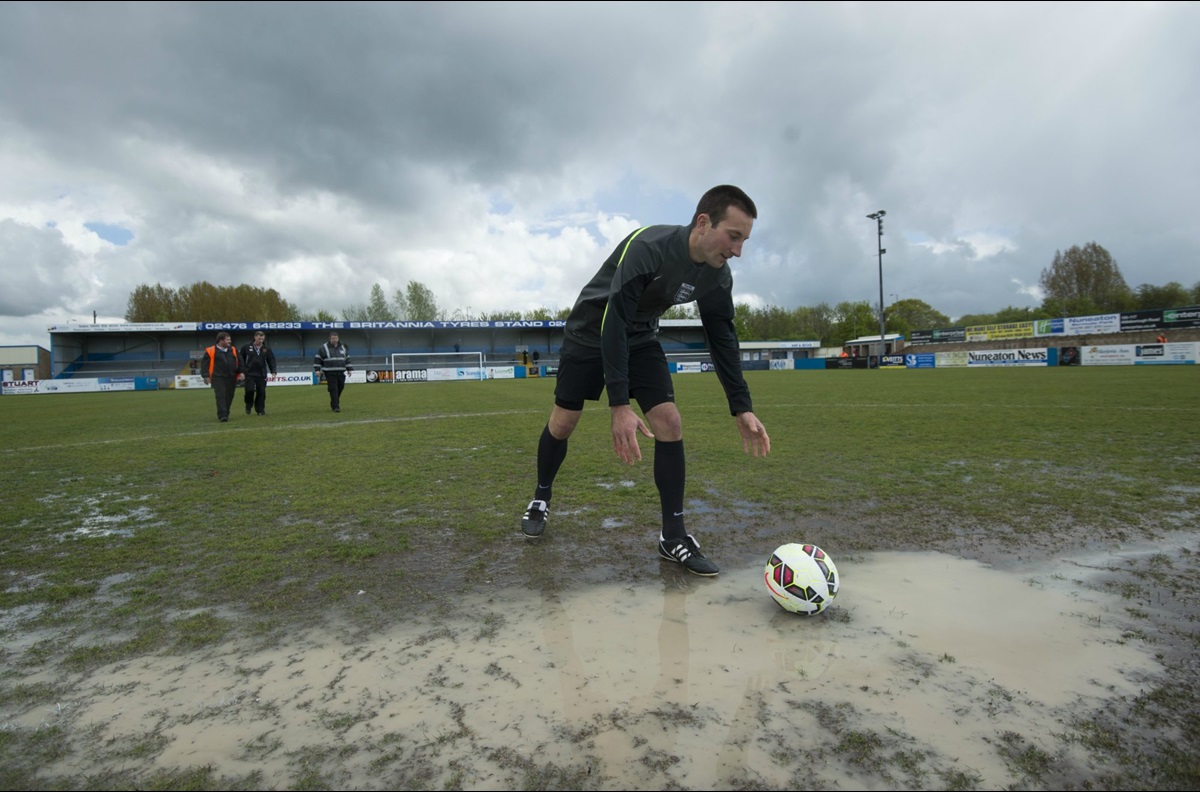
Pitch Inspection Guidance
It is vital a referee does a pitch inspection professionally and remembers the overriding factor of player safety.
At the forefront of their mind, they must always think - 'is the playing surface safe to play on?'
If a pitch inspection is required (some competitions will allow the home club or venue owners (ie Council pitches) to postpone a match), arrive in plenty of time to ensure the inspection is complete in good time. Keep both clubs informed as and when appropriate.
Prior to reaching a decision the Referee who is making the inspection should consider the following 12 points:
1) Whether or not the ground (playing area) is dangerous (e.g. ice / frost).
2) Whether or not conditions are, or could turn, farcical.
3) The views of the home club groundskeeper. For instance, draining capabilities in the event of standing water
4) The existing condition of the playing surface in conjunction with the prevailing weather conditions confirmed by the local weather authority. Pay particular attention to rutted and frozen areas, or those areas which are very soggy.
5) Be active and inspect thoroughly!
A professional approach must be adopted when carrying out an inspection. It is not acceptable just to take a cursory look at the field of play in normal dress - sports kit should be worn, along with appropriate footwear (i.e. football boots) and all areas of the pitch should be inspected. A ball should be used to determine whether the surface is playable (for movement and bounce).
6) Fog creates its own problems - use perspectives from ground level and the back of a stand, and check the forecast.
7) When dealing with elements such as frost or ice – remember that the highest temperature of the day is usually around midday. Get a forecast of the projected temperature for the time when the match is due to conclude
8) The manpower available to the home club to carry out any necessary work to make the ground playable.
9) The time the visiting club are due to commence their journey.
10) Liaise with managers to gauge the thoughts of both clubs, but remember the final decision as to whether the match is played is the referee's.
11) Once you have made your decision, stick to it and make sure it is communicated to both the home and away team.
12) Ensure you tell the competition, league or County - depending on the game you are refereeing.
As stated at the start, the main concern must be player safety and, whilst consultation may have taken place with others involved in the match, the final decision must be the referee's.
For more information on this or any refereeing topic including becoming a referee please email Support@OxfordshireFA.com


